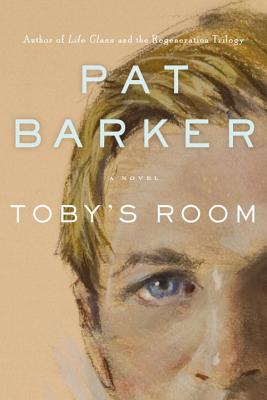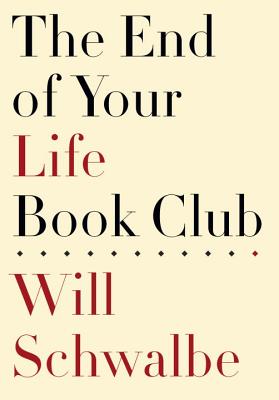The Man Booker Prize-winning author of The Sea
gives us a brilliant, profoundly moving new novel about an actor in the
twilight of his life and his career: a meditation on love and loss, and
on the inscrutable immediacy of the past in our present lives.
Is there any difference between memory and invention? That is the question that fuels this stunning novel, written with the depth of character, the clarifying lyricism and the sly humor that have marked all of John Banville’s extraordinary works. And it is the question that haunts Alexander Cleave, an actor in the twilight of his career and of his life, as he plumbs the memories of his first—and perhaps only—love (he, fifteen years old, the woman more than twice his age, the mother of his best friend; the situation impossible, thrilling, devouring and finally devastating) . . . and of his daughter, lost to a kind of madness of mind and heart that Cleave can only fail to understand. When his dormant acting career is suddenly, inexplicably revived with a movie role portraying a man who may not be who he says he is, his young leading lady, famous and fragile, unwittingly gives him the opportunity to see with aching clarity the “chasm that yawns between the doing of a thing and the recollection of what was done.”
Ancient Light is a profoundly moving meditation on love and loss, on the inscrutable immediacy of the past in our present lives, on how invention shapes memory and memory shapes the man. It is a book of spellbinding power and pathos from one of the greatest masters of prose at work today.
From Booker Prize winner Pat Barker, a masterful novel that portrays the staggering human cost of the Great War. Admirers of her Regeneration Trilogy as well as fans of Downton Abbey and War Horse will be enthralled.
With Toby’s Room, a sequel to her widely praised previous novel Life Class, the incomparable Pat Barker confirms her place in the pantheon of Britain’s finest novelists. This indelible portrait of a family torn apart by war focuses on Toby Brooke, a medical student, and his younger sister Elinor. Enmeshed in a web of complicated family relationships, Elinor and Toby are close: some might say too close. But when World War I begins, Toby is posted to the front as a medical officer while Elinor stays in London to continue her fine art studies at the Slade, under the tutelage of Professor Henry Tonks. There, in a startling development based in actual fact, Elinor finds that her drafting skills are deployed to aid in the literal reconstruction of those maimed in combat.
One day in 1917, Elinor has a sudden premonition that Toby will not return from France. Three weeks later the family receives a telegram informing them that Toby is “Missing, Believed Killed” in Ypres. However, there is no body, and Elinor refuses to accept the official explanation. Then she finds a letter hidden in the lining of Toby’s uniform; Toby knew he wasn’t coming back, and he implies that fellow soldier Kit Neville will know why.
Toby’s Room is an eloquent literary narrative of hardship and resilience, love and betrayal, and anguish and redemption. In unflinching yet elegant prose, Pat Barker captures the enormity of the war’s impact—not only on soldiers at the front but on the loved ones they leave behind.
“What are you reading?”
That’s the question Will Schwalbe asks his mother, Mary Anne, as they sit in the waiting room of the Memorial Sloan-Kettering Cancer Center. In 2007, Mary Anne returned from a humanitarian trip to Pakistan and Afghanistan suffering from what her doctors believed was a rare type of hepatitis. Months later she was diagnosed with a form of advanced pancreatic cancer, which is almost always fatal, often in six months or less.
This is the inspiring true story of a son and his mother, who start a “book club” that brings them together as her life comes to a close. Over the next two years, Will and Mary Anne carry on conversations that are both wide-ranging and deeply personal, prompted by an eclectic array of books and a shared passion for reading. Their list jumps from classic to popular, from poetry to mysteries, from fantastic to spiritual. The issues they discuss include questions of faith and courage as well as everyday topics such as expressing gratitude and learning to listen. Throughout, they are constantly reminded of the power of books to comfort us, astonish us, teach us, and tell us what we need to do with our lives and in the world. Reading isn’t the opposite of doing; it’s the opposite of dying.
Will and Mary Anne share their hopes and concerns with each other—and rediscover their lives—through their favorite books. When they read, they aren’t a sick person and a well person, but a mother and a son taking a journey together. The result is a profoundly moving tale of loss that is also a joyful, and often humorous, celebration of life: Will’s love letter to his mother, and theirs to the printed page.
Is there any difference between memory and invention? That is the question that fuels this stunning novel, written with the depth of character, the clarifying lyricism and the sly humor that have marked all of John Banville’s extraordinary works. And it is the question that haunts Alexander Cleave, an actor in the twilight of his career and of his life, as he plumbs the memories of his first—and perhaps only—love (he, fifteen years old, the woman more than twice his age, the mother of his best friend; the situation impossible, thrilling, devouring and finally devastating) . . . and of his daughter, lost to a kind of madness of mind and heart that Cleave can only fail to understand. When his dormant acting career is suddenly, inexplicably revived with a movie role portraying a man who may not be who he says he is, his young leading lady, famous and fragile, unwittingly gives him the opportunity to see with aching clarity the “chasm that yawns between the doing of a thing and the recollection of what was done.”
Ancient Light is a profoundly moving meditation on love and loss, on the inscrutable immediacy of the past in our present lives, on how invention shapes memory and memory shapes the man. It is a book of spellbinding power and pathos from one of the greatest masters of prose at work today.
From Booker Prize winner Pat Barker, a masterful novel that portrays the staggering human cost of the Great War. Admirers of her Regeneration Trilogy as well as fans of Downton Abbey and War Horse will be enthralled.
With Toby’s Room, a sequel to her widely praised previous novel Life Class, the incomparable Pat Barker confirms her place in the pantheon of Britain’s finest novelists. This indelible portrait of a family torn apart by war focuses on Toby Brooke, a medical student, and his younger sister Elinor. Enmeshed in a web of complicated family relationships, Elinor and Toby are close: some might say too close. But when World War I begins, Toby is posted to the front as a medical officer while Elinor stays in London to continue her fine art studies at the Slade, under the tutelage of Professor Henry Tonks. There, in a startling development based in actual fact, Elinor finds that her drafting skills are deployed to aid in the literal reconstruction of those maimed in combat.
One day in 1917, Elinor has a sudden premonition that Toby will not return from France. Three weeks later the family receives a telegram informing them that Toby is “Missing, Believed Killed” in Ypres. However, there is no body, and Elinor refuses to accept the official explanation. Then she finds a letter hidden in the lining of Toby’s uniform; Toby knew he wasn’t coming back, and he implies that fellow soldier Kit Neville will know why.
Toby’s Room is an eloquent literary narrative of hardship and resilience, love and betrayal, and anguish and redemption. In unflinching yet elegant prose, Pat Barker captures the enormity of the war’s impact—not only on soldiers at the front but on the loved ones they leave behind.
“What are you reading?”
That’s the question Will Schwalbe asks his mother, Mary Anne, as they sit in the waiting room of the Memorial Sloan-Kettering Cancer Center. In 2007, Mary Anne returned from a humanitarian trip to Pakistan and Afghanistan suffering from what her doctors believed was a rare type of hepatitis. Months later she was diagnosed with a form of advanced pancreatic cancer, which is almost always fatal, often in six months or less.
This is the inspiring true story of a son and his mother, who start a “book club” that brings them together as her life comes to a close. Over the next two years, Will and Mary Anne carry on conversations that are both wide-ranging and deeply personal, prompted by an eclectic array of books and a shared passion for reading. Their list jumps from classic to popular, from poetry to mysteries, from fantastic to spiritual. The issues they discuss include questions of faith and courage as well as everyday topics such as expressing gratitude and learning to listen. Throughout, they are constantly reminded of the power of books to comfort us, astonish us, teach us, and tell us what we need to do with our lives and in the world. Reading isn’t the opposite of doing; it’s the opposite of dying.
Will and Mary Anne share their hopes and concerns with each other—and rediscover their lives—through their favorite books. When they read, they aren’t a sick person and a well person, but a mother and a son taking a journey together. The result is a profoundly moving tale of loss that is also a joyful, and often humorous, celebration of life: Will’s love letter to his mother, and theirs to the printed page.
Following from Jo Nesbø's electrifying international best-sellers The Snowman and The Leopard, now comes Phantom,
which plunges the brilliant, deeply troubled, now former police officer
Harry Hole into a full-tilt investigation on which his own tenuous
future will come to depend.
When Harry left Oslo again for Hong Kong—fleeing the traumas of life as a cop—he thought he was there for good. But then the unthinkable happened. The son of the woman he loved, lost, and still loves is arrested for murder: Oleg, the boy Harry helped raise but couldn't help deserting when he fled. Harry has come back to prove that Oleg is not a killer. Barred from rejoining the police force, he sets out on a solitary, increasingly dangerous investigation that takes him deep into the world of the most virulent drug to ever hit the streets of Oslo (and the careers of some of the city's highest officials), and into the maze of his own past, where he will find the wrenching truth that finally matters to Oleg, and to himself.
When Harry left Oslo again for Hong Kong—fleeing the traumas of life as a cop—he thought he was there for good. But then the unthinkable happened. The son of the woman he loved, lost, and still loves is arrested for murder: Oleg, the boy Harry helped raise but couldn't help deserting when he fled. Harry has come back to prove that Oleg is not a killer. Barred from rejoining the police force, he sets out on a solitary, increasingly dangerous investigation that takes him deep into the world of the most virulent drug to ever hit the streets of Oslo (and the careers of some of the city's highest officials), and into the maze of his own past, where he will find the wrenching truth that finally matters to Oleg, and to himself.




No comments:
Post a Comment